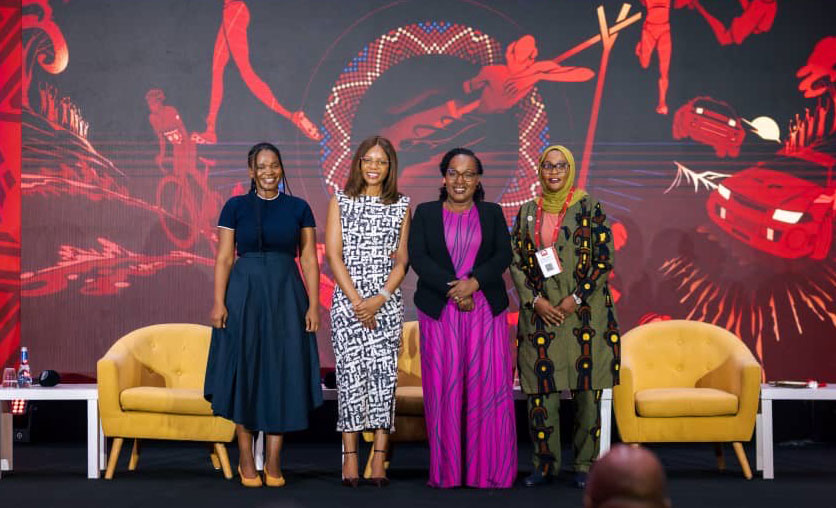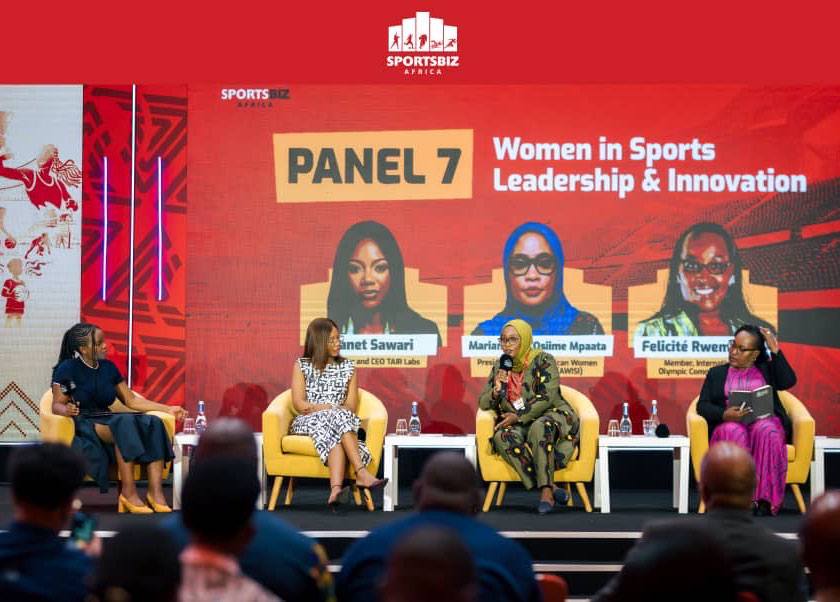Safe spaces for women in sport are Africa’s unfinished business: Dr. Mpaata
For Dr. Mariam Mell’Osiime Mpaata, President and Founder of the African Women in Sports Initiative (AWISI), the gathering was both a moment of affirmation and a call to action.
Dr. Mariam Mell’Osiime Mpaata. Courtesy photo
The SportsBiz Africa Forum held in Kigali, Rwanda from September 9–10, 2025, brought together trailblazers, experts, and emerging leaders to debate the future of African sport.
Among the critical issues spotlighted were governance, sponsorship, women’s leadership, and the urgent need to address gender-based violence (GBV) in sports spaces.
For Dr. Mariam Mell’Osiime Mpaata, President and Founder of the African Women in Sports Initiative (AWISI), the gathering was both a moment of affirmation and a call to action.
Sitting on a high-profile panel alongside IOC Member Madam Félicité Rwemarika and Janet Sawari, CEO of Taib Labs, she brought a deeply personal perspective to one of the forum’s most pressing themes, the safety and dignity of women in sport.

“For me, the most powerful takeaway was the realization that while progress is happening, the lack of safe systems for women in sport remains a continental crisis,” Mpaata explained.
“Conversations around governance and sponsorship often ignore the emotional and physical safety of the people, especially women, who make sports work. No amount of funding or reform is meaningful if women are still navigating fear, silence, and abuse,”She said.
Reflecting on her panel experience, Mpaata said it was a powerful reminder that AWISI’s mission is part of a much larger movement.
“Sitting beside Félicité, who has been a trailblazer for women in sport peacebuilding, and Janet, whose voice represents the power of technology in sports, reminded me that AWISI is not alone,”
“Our mission to unify, protect, and elevate African women in sport, is part of something bigger. That panel was a snapshot of what collective impact can look like,” Mpaata shared.
She emphasized the importance of intergenerational leadership, noting that the future of sport requires pioneers, policy shapers, and young disruptors working together.
A Crisis That Cannot Be Ignored
Mpaata was unequivocal about why GBV is a core priority for AWISI.

“It is urgent right now because women are dying, literally. Not long ago, Olympian Rebecca Cheptegei was burned by her partner. Her story is heartbreaking, but not isolated. Beyond such horrific headlines lies a quieter epidemic of harassment, coercion, and abuse that women in sport face daily across Africa,” She remarked.
AWISI, she noted, hears stories every week from athletes at every level.
These lived experiences are now backed by data.
New research from Aga Khan University’s Graduate School of Media and Communications revealed that 62% of respondents in Kenya, Uganda, and Tanzania had either experienced or knew someone who had experienced GBV in sport.
Kenya recorded the highest prevalence at 69%, followed by Tanzania at 62%, and Uganda at 48%. Young women were most at risk, with 82% of female athletes identified as vulnerable.
“This report is more than a publication, it is a strategic tool,” Mpaata stressed.
“We are using it to influence policy, strengthen education, and amplify advocacy across the continent,”.
What Needs to Change
So what can be done? Mpaata outlined practical steps for sports institutions and male allies,
“The first step is acknowledging the problem. Silence is complicity. Institutions must enforce safeguarding policies, offer clear reporting channels, and ensure survivors get legal and emotional support. Male allies, especially in leadership, need to call out misconduct and model respectful behavior,” She advised.
Mpaata pointed to AWISI’s partnership with FIDA Uganda, which provides legal aid, protection mechanisms, and access to justice for athletes who experience abuse, as an example of a model that should be replicated across Africa.
Beyond safety, Mpaata is optimistic about the future of women’s leadership in African sport.
She envisions a rise in women-owned ventures, from media platforms to management agencies. But barriers remain.
“Leadership is not just about titles, it is about economic control, influence, and visibility. We need to tackle access to capital, gender bias in hiring and promotion, and the lack of mentorship pipelines. If we can do that, women won’t just be tokens at the table, they will be power players,”.
One of AWISI’s most effective strategies, she added, has been storytelling.
By amplifying women’s real voices and bringing together over 700 women in sport from 35 countries, AWISI has fostered both solidarity and visibility.
Countdown to the AWISI Summit
With just 60 days left to the AWISI Summit (November 26–28, 2025, Hotel Africana, Kampala), Mpaata said the event will be defined by action, not talk.
Day one will feature keynote speeches, survivor-led panels, and expert insights into GBV, innovation, and leadership.
Day two will spotlight unity through a continental sports day with football, netball, athletics, and other games played in mixed teams. Wellness, music, and team-building will round out the program.
“This summit is more than an event, it is a movement to build a safer, more empowering future for women in sport across Africa,” she said.
Hosting it in Uganda, she added, is deeply symbolic.
“Uganda is not just my home, it reflects both the challenges and potential facing women in sport.
Hotel Africana has hosted many pivotal Pan-African movements. By gathering there, we are grounding our movement in the heart of Africa while inviting the world to witness our progress.
Looking Beyond the Summit
Mpaata also hopes the summit will deliver concrete policies, a continental declaration on safe sport, and a legal framework for GBV prevention.
AWISI also plans to launch its Leadership Incubator and operationalize the AWISI–FIDA Uganda legal support program. a first-of-its-kind initiative offering structured legal protection for women in sport.
“Ultimately, we want the summit to be remembered not for who spoke but for what changed because we came together,” She shared.